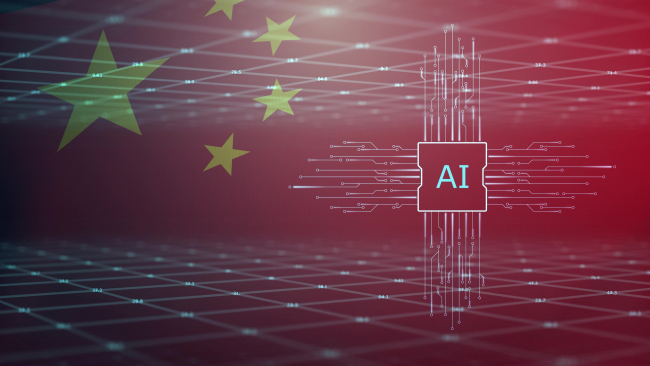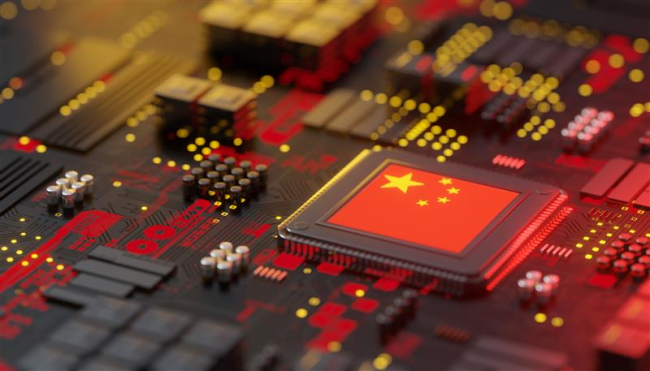Which European Expectations Concerning the Mediterranean Union?

Introduction
Without doubt there are numerous domains in which results of the Euro-Mediterranean Partnership (EMP or Barcelona Process) have remained behind high initial European expectations. This paper will highlight three issues that have been a cause for disappointment. Further, it will question to what extent the Union for the Mediterranean (UfM), as outlined through the paper of the European Commission released in May 2008, presents an adequate response to these issues. The issues are: 1. Co-ownership 2. Political reform 3. Visibility. In addition, this paper will examine to what extent the UfM takes the Maghreb as a sub-region into account.
1. Co-Ownership
Within the Barcelona context co-ownership as well as partnership at eye level have remained an empty promise. Symbolic for this has been the fact that the administrative process has been handled in Brussels and mainly by representatives of the EU states. According to the Commission's paper of May 20, establishing more co-ownership is one of the main goals of the UfM. Obviously, the proposed secretariat and co-presidency for the Union for the Mediterranean can resolve the issue of asymmetries and introduce co-ownership on the formal institutional level.
But I see a number of unresolved problems: - Firstly, it is far from clear whether the secretariat and especially the co-presidency can indeed be operable, given the fact that the Israeli-Palestinian conflict is not solved and that few states would be prepared to one day accept Israeli co-presidency. It is also hard to imagine that Algeria is ready to accept Moroccan presidency, given the unresolved Western Sahara conflict. These regional conflicts are likely to also affect the planed secretariat on the operational level. Given the regional political repercussions of the unresolved Middle East conflict, it would be a great surprise to begin with, if all Arab heads of state participated in the July 13 summit in Paris at which the Union for the Mediterranean shall be launched.
- A second problem that remains unsolved is a question revolving around who shall owns the process in the Mediterranean partner countries: Ideally, of course, everyone. But due to the authoritarian nature of virtually most political systems in the partner states, there is a divergence between the interests of governing elites and those of societies, or more specifically, independent civil society actors and small and medium size entrepreneurs. Over the 13 years of Barcelona it has become quite obvious that civil society activities can only develop broad and positive dynamics when the larger political framework also changes, as has been the case in Morocco.
There is no easy way out of these predicaments. In the long term the only solution remains political reform. But in the short term, I believe, more co-ownership can be achieved if the newly created secretariat will indeed, as is mentioned in the outline, strongly engage Southern civil society actors in the conceptualization and implementation of its projects. This can be done easily within domains such as the environmental governance, where state actors and non-state actors in the Southern Mediterranean share the same goals. Yet, statements such as the following which I heard from members of the commission engaged in the conceptualization of the UfM are not very confidence inspiring in this respect: "Yes, we know, civil society actors should be consulted but we have no time before July 13". Moreover, developing a sense of co-ownership in the partner countries requires that as broad a spectrum of actors and not just the usual suspects are involved in projects. Europe has had a tendency to deal primarily with those civil society actors that are entirely like-minded, namely secular, and that speak either English or French. This has led to the exclusion of arabophone and Islamist actors. In the future more efforts should be made to reach other civil society partners and especially reform-oriented Islamists. The latter should not be excluded because they are generally very-well entrenched in their societies.
To conclude this point, I believe that the Union for the Mediterranean did not get off for a great start with respect to co-ownership and partnership. Given the fact that the commission's paper points out the goal of co-ownership as one of the main impulses for the new project, I find it quite ironic that the EU decided to relaunch Barcelona under the new label of Union for the Mediterranean at an EU summit, without participation or prior consultation of the Southern EMP partners.
2. Political Reform
It is no secret that European policy makers have not been satisfied with the degree of political reform in most partner states. The goal of democratization continues to be stressed in the commission's outline for the UfM; the paper also reiterates the continued validity of the Barcelona Declaration. Yet, there is no indication in the paper how this goal shall be reached, and what new measures are introduced to ensure that in future more progress shall be made. This approach to the issue of democratization mirrors perfectly the gap between European rhetoric and European action.
Over the past years, and especially since 9/11, security issues - the fight against terrorism and organized crime but also illegal migration have dominated the European agenda when it comes to cooperation. In strong contrast, democratization and respect for human rights have played a very minor role in Europe's day to day cooperation with the region. There are a number of reasons for this: - divergences within the EU over how much pressure to apply; - the fear of Islamist election victories; - the fact that Europe has few means to apply pressure to states such as Libya and Algeria, of which it depends for its energy security, and that are important partners for cooperation in the fight against terrorism or the reduction of irregular migration.
Given these difficulties and given the strong project cooperation aspect of the Union for the Mediterranean, Europe would be well advised to downscale its overambitious democratization rhetoric. Instead it should insist on a limited number of very concrete benchmarks in the field of legal security, rule of law and governance. This is obviously already being done in the framework of the Neighbourhood Policy (ENP). However, not all countries participate in the ENP. So it is particularly important that project cooperation in the framework of the UfM sets high standards and requirements in terms of governance. Also, partner countries should be made to understand that foreign investment, which has remained remarkably low so far outside hydrocarbon sectors, will only increase if legal security is guaranteed and rule of law prevails. Many of the political reform issues can and should be delegated to the ENP - with its Action Plans and positive conditionality it has more promising instruments for inducing reform.
Nevertheless, Europe may want to think about communicating within the framework of the UfM a number of red lines in the sensitive domains of human rights and freedom of expression. This is important because not all countries likely to participate in the UfM also participate in the ENP. Embarking on project benchmarks and general red lines, however, requires also thinking about specific consequences and mechanisms in case of non-compliance - otherwise Europe risks remaining a well-meaning actor but not one with real credibility, especially among the region's population.
Obviously, the UfM should also have mechanisms for honouring good performers. It may be necessary to think in terms of different speeds and different degrees of closeness in cooperation with the different countries. Any grand design one-size-fits-all approach will not do justice to the heterogeneity of the Southern partner states.
3. Visibility
I would argue that today in Germany more people have heard of the Union for the Mediterranean, a project that is one year old, than of Barcelona, a project that is going into its 13th year. This has mainly to do with the German-French divergences over Sarkozy's initial project. Lack of visibility in a general public has been a key problem of the Barcelona process. This for instance explains why the European media and even officials did not immediately pick up on the fact that President Sarkozy proposed projects in fields in which project-cooperation already exists. For instance, Sarkozy wanted to make the Mediterranean Union "into the cleanest sea worldwide". Yet, the existing Euro-Med initiative "Horizon 2020" is addressing precisely pollution in the Mediterranean - albeit using bureaucratic terminology and less catchy language to describe its goals. I believe the Union for the Mediterranean can do better in this respect with its projects if these have are tangible, have clear, measurable and easily communicable goals, and quickly produce results on the ground. Here some of the proposed projects, such as the "Highways of the Mediterranean", are promising.
Another problem for visibility is that the Mediterranean has become an area of many, too many, parallel initiatives. I will mention but the ENP. For non-bureaucrats both in the Maghreb and in the EU it is difficult to this day to understand the differences between the ENP and the EMP. So there still is much explanatory work to be done. Ideally, there are two possibilities for reducing confusion and parallel structures, and for increasing synergies between the various initiatives for the region: Either the Union for the Mediterranean becomes an umbrella for all forms of cooperation: the bilateral, the flexible multi-lateral (variable geometry), and the overall regional. Or, this the second option, the multilateral regional and sub-regional initiatives are gathered under the roof of the ENP.
4. The UfM and the Maghreb
It is common knowledge that the Middle East conflict has been one of the main, if not the main obstacle to regional cooperation within the Barcelona framework. Here the UfM may indeed present a step forward in that it allows for or even encourages sub-regional cooperation or project cooperation in variable geometry. This has the advantage of not making Israeli presence mandatory, as has largely been the case in the overall regional approach of Barcelona. It thus enables the Maghreb to engage in multilateral cooperation with Europe despite the persistence of the Middle East conflict AND to do this within the existing framework Barcelona-UFM framework. The 5+5 security initiative which is not under the umbrella of Barcelona has been the best prove that numerically reduced multilateral forums can produce results, even in the sensitive security domain and despite the Western Sahara conflict.
One advantage of small forums is that peer pressure sets in. Of course, the 5+5 also have the advantage of a certain opacity and informality which makes states such as the Libyan one more comfortable in participating than if everything was negotiated in the public light. Project cooperation in variable geometry formats - if they remain small, have a light bureaucracy and high flexibility - thus could promote South-South cooperation and eventually end the state and the costs of the "non-Maghreb". Yet, Europeans should not deceive themselves and keep in mind, that even the most sophisticated framework for Euro-Med cooperation can never be a substitute for conflict resolution: solving the Arab-Israeli conflict will remain a precondition for fully blossoming regional cooperation.

Available in:
Regions and themes
Share
Related centers and programs
Discover our other research centers and programsFind out more
Discover all our analysesTaiwan’s Rising Space Program: Building Up Industry, Supporting National Security
Taiwan, known for its leadership in semiconductors and information and communications technology (ICT), is now making significant strides in the space industry. While historically modest, Taiwan’s space program has seen a transformation since 2020, driven by President Tsai Ing-wen’s commitment to expanding the country’s space capabilities. Key milestones include the passage of the Space Development Act and the creation of the Taiwan Space Agency (TASA), which has bolstered the resources and visibility of Taiwan’s space ambitions.
AI and Technical Standardization in China and the EU: Diverging priorities and the need for common ground
Given the highly disruptive potential of AI, global cooperation on AI safety and governance is imperative, and yet the deeply transformational potential of AI also ensures that a high level of competition and systemic rivalry is likely unavoidable. How can the EU best manage its complex relationship with China in the field of AI so as to ensure a necessary level of cooperation in spite of competition and rivalry?
China’s Quest for a Quantum Leap
The global race to harness quantum science is intensifying. Recognizing the strategic potential of quantum technology for economic, military, and scientific advancement, China is focusing on quantum breakthroughs as a way to shift the balance of power, especially in its competition with the United States. President Xi Jinping has emphasized the importance of scientific innovation, particularly in quantum fields, to fuel national development and ensure security.
Taiwan's Energy Supply: The Achilles Heel of National Security
Making Taiwan a “dead island” through “a blockade” and “disruption of energy supplies” leading to an “economic collapse.” This is how Colonel Zhang Chi of the People’s Liberation Army and professor at the National Defense University in Beijing described the objective of the Chinese military exercises in May 2024, following the inauguration of Taiwan’s new president, Lai Ching-te. Similar to the exercises that took place after Nancy Pelosi’s visit to Taipei in August 2022, China designated exercise zones facing Taiwan’s main ports, effectively simulating a military embargo on Taiwan. These maneuvers illustrate Beijing’s growing pressure on the island, which it aims to conquer, and push Taiwan to question its resilience capacity.














